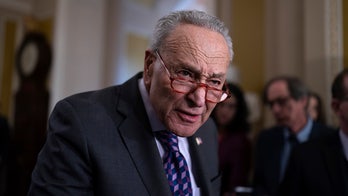President Obama has made many promises about his signature health care plan, but one of the simplest was an assurance that it would lower national health care spending and save every family thousands of dollars.
For example, in May 2009 he hailed "comprehensive health care reform -- so that we can do what I pledged to do as a candidate and save a typical family an average of $2,500 on their health care costs in the coming years."
But now government actuaries have reached a different conclusion, finding that ObamaCare will actually increase health care spending by $621 billion over the next 10 years.
Doug Holtz-Eakin, the former head of the Congressional Budget Office, says, "now we're seeing the official scorekeepers of health spending say 'hey it's going up, not down.' That's going to be a mark against the program no matter what."
Jim Capretta of the Ethics and Public Policy Center says the actuaries "made it very clear in their projections that the health care law did not bend the cost curve down. It bent it up," he says, adding, "there will be increase in national health spending associated with the implementation of the health care law."
Analysts say there is no mystery about the increasing costs -- that it's all in the way the law was structured.
John Goodman of the National Center for Policy Analysis says he’s not surprised that we're spending more than promised.
"We're adding more people to the rolls. More people have insurance. We're insisting that those who have insurance have more generous coverage," he explains.
"So of course people are going to spend more and as people spend more, the premiums are going to go up."
Supporters of the law, however, argue two factors will help hold down costs, starting with the exchanges.
"There are going to be a lot of plans that people can choose from and so there'll be competition among these plans," says Ron Pollack of Families USA.
Not only that, he says, taxpayer subsidies will lower the costs for some.
"Very significant subsidies," says Pollack, "that will be provided to people to help them pay for their premiums. And these subsidies reach deeply into the middle class."
Monday night, however, late night host Jon Stewart pressed Health and Human Services Secretary Kathleen Sebelius about the price increases many families are facing.
Stewart, seemingly struggling a bit to understand how the law works, asked,"There are people that will end up in difficult times having to spend money they would not have spent, yes? To buy health care if they did not have it - if they did not want it?"
Sebelius, avoiding the most pointed part of the question, said, "there are people who will - yes, pay money, and many of them will pay less than they pay for their cable bill or cell phone bill a month."
But no matter what anyone spends on cable or cell phones, that $621 billion increase does not mean a savings of $2500 a year.
"So when you divide that across the U.S. population," Capretta says, "all Americans will see a higher bill per capita from the health care law , not a lower one."




